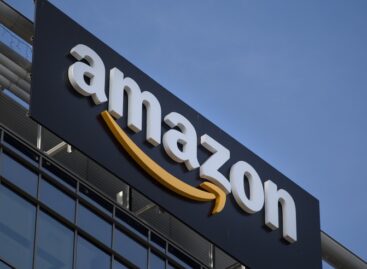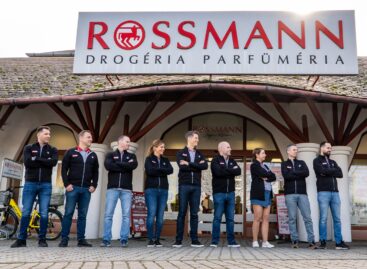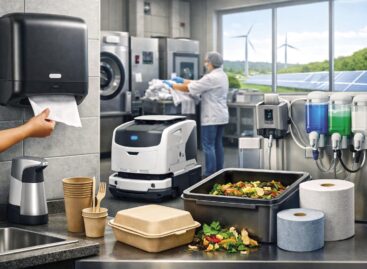FMCG sales are growing dynamically online too – 15th E-commerce Conference, 5-6 June 2018, Visegrád (Part 3)
On the second day of Ecommerce Hungary’s conference the FMCG sector was analysed at a roundtable discussion, which was moderated by Zsuzsanna Hermann, our magazine’s editor-in-chief. She pointed it out that according to the GfK Household Panel survey, FMCG’s share from households’ total online spending is 1 percent.

Participants of the roundtable discussion on FMCG: Sándor Nagy, president of Ecommerce Hungary,
Márk Szomolányi, digital and E-commerce director of Auchan Magyarország Kft.,
Vivien Reinhardt, E-commerce manager of Heineken and László Flórián, managing director of Rossmann Magyarország,
moderator: Zsuzsanna Hermann, owner and editor-in-chief of Trade Magazin
Vivien Reinhardt, e-commerce manager of Heineken Hungary told: the brewing company started focusing on e-commerce last summer. Their goal is reaching consumers in the most relevant channels, so besides selling online they also concentrate on an omnichannel strategy. Ms Reinhardt believes that a manufacturer can cooperate with online retailers in the domain of online promotions, e.g. Heineken Hungary gave away free beer glasses above a certain quantity of product bought, and they also joined the Black Friday campaign. She stressed the importance of integrated thinking – consumers need to be reached in every possible way, it isn’t enough to be present in just one channel with every message.
According to Sándor Nagy, president of Ecommerce Hungary and managing director of G’Roby, the FMCG sector is going to be one of the fastest developing industries in Central Europe in 2018. Survey results and the company’s experience indicate that price isn’t the most important decision-making factors any more when buying online, as in many cases quality service matters more (this means the whole process, from entering the website to the goods being delivered). Mr Nagy’s experience that Hungarians are spending more and buying higher-quality products than before, and there are more new buyers as well.
G’Roby’s conversion rate is way above the sector’s average and the managing director explained that they are a bit different than other market players: they like to be innovative and try completely new things, going against the traditions and market trends a little. A good example of this is that 18 percent of G’Roby’s sales are orders placed via telephone. Last year they launched a parcel delivery service, offered in partnership with a logistics company. The company also has a smartphone app to help customers in doing their shopping.
László Flórián, managing director of Rossmann Hungary revealed that they are very proud of the drugstore chain’s new app. He told that each item Rossmann sells is available online too and they have nearly 3,000 points where purchased good can be collected. The company uses all forms of delivery, cooperating with the Hungarian Post. In Hungary’s 140 biggest towns 2-, 3- and 4-hour time slots are available to customers in the case of home delivery. At the moment Rossmann is testing half-price express delivery in Budapest and its surroundings, but so far the service hasn’t been very popular, perhaps because it works with a 4-hour time slot.
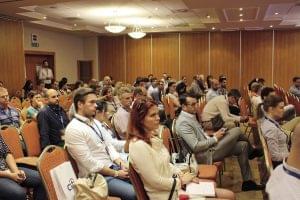
Márk Szomolányi, digital and E-commerce director of Auchan Magyarország Kft. informed that they offer nearly 23,000 FMCG products online in and around Budapest, orders can be placed from 08:00 to 22:00 and deliveries are made by the company, using 2-hour time slots. The average shopper orders 54 products for more than HUF 20,000.
About 95 percent of orders are delivered to shoppers’ doors, but Auchan has started testing a click and collect solution as well, with three pick-up points in Budapest. Auchan provides a full shopping experience online – this means that every coupon or price discount can be used in the online shop too. Each element of the buying process is managed by Auchan, so no partners are involved. Since they don’t like to outsource tasks, the retail chain built a 30-strong call centre team that covers every retail channel where Auchan sells.
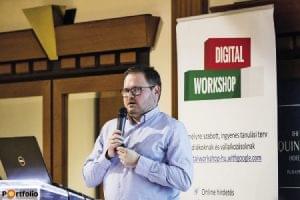
Illés Vadász
industry manager
Google
According to Illés Vadász, industry manager of Google, consumers are empowered to do a lot of things by the digital technology. They are very confident, curious, have high expectations and are impatient. Shoppers want to know everything because basically all information is available on the internet. Because of this they check out even the simplest things online. These days shoppers want brands and retailers to use technology for making personalised offers whenever they need it.
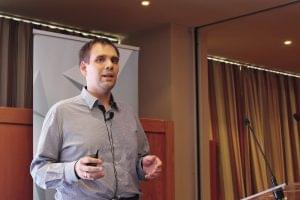
Dr. Attila Horváth
head of electronic payment division
BIG FISH
Dr Attila Horváth, the head of BIG FISH Internet-technológiai Kft.’s electronic payment division gave a presentation about the payment habits of shoppers in Hungary and abroad. About the company he told: they have been developing design solutions, smartphone apps, online shops and electronic payment solutions in Hungary for 20 years. The company’s Payment Gateway solution – launched in 2009 – manages the payment mix of 400 online shops. In his view consumers are now mature enough for online shops to try to keep them on the website when the time to pay comes (instead of being directed to the platform of a bank).
Shoppers also trust an online shop more if they see the sum that needs to be paid is in their own currency – this service is called dynamic currency conversion (DCC). Paying in instalments is now also possible online for Mastercard holders. All retailers have to do is ask for this type of payment from their service provider. Dr Horváth added that cash payment is still popular among Hungarians and today it is possible to pay in cash when someone is buying online: shoppers get a QR code for paying, which they can download or print out, and this is scanned in a Relay, SPAR or OMV shop and the payment is made, after which the retailer is informed of this and they provide the service. /
Related news
Related news
Lidl is building a new administrative and logistics centre in Straubing
🎧 Hallgasd a cikket: Lejátszás Szünet Folytatás Leállítás Nyelv: Auto…
Read more >


